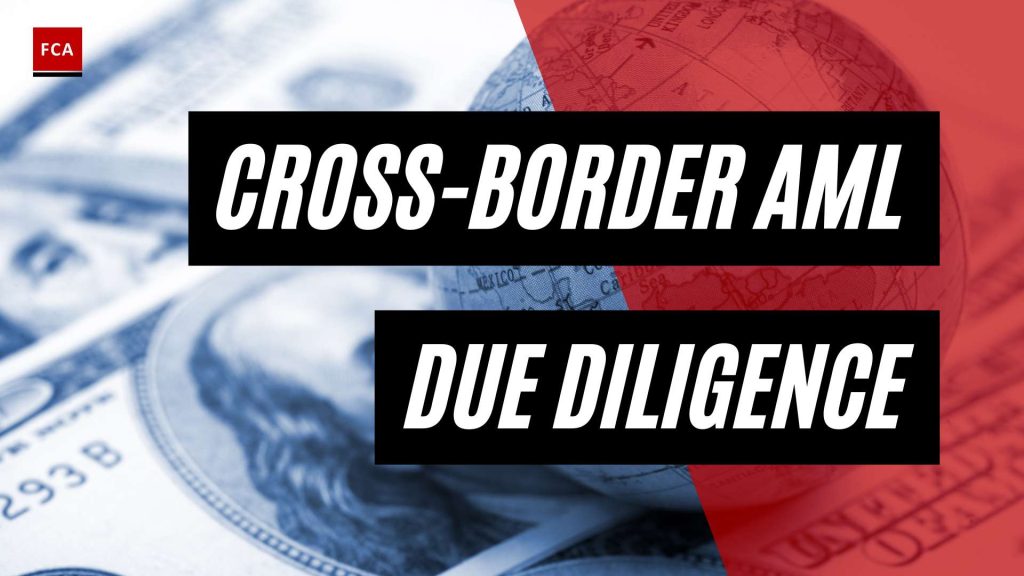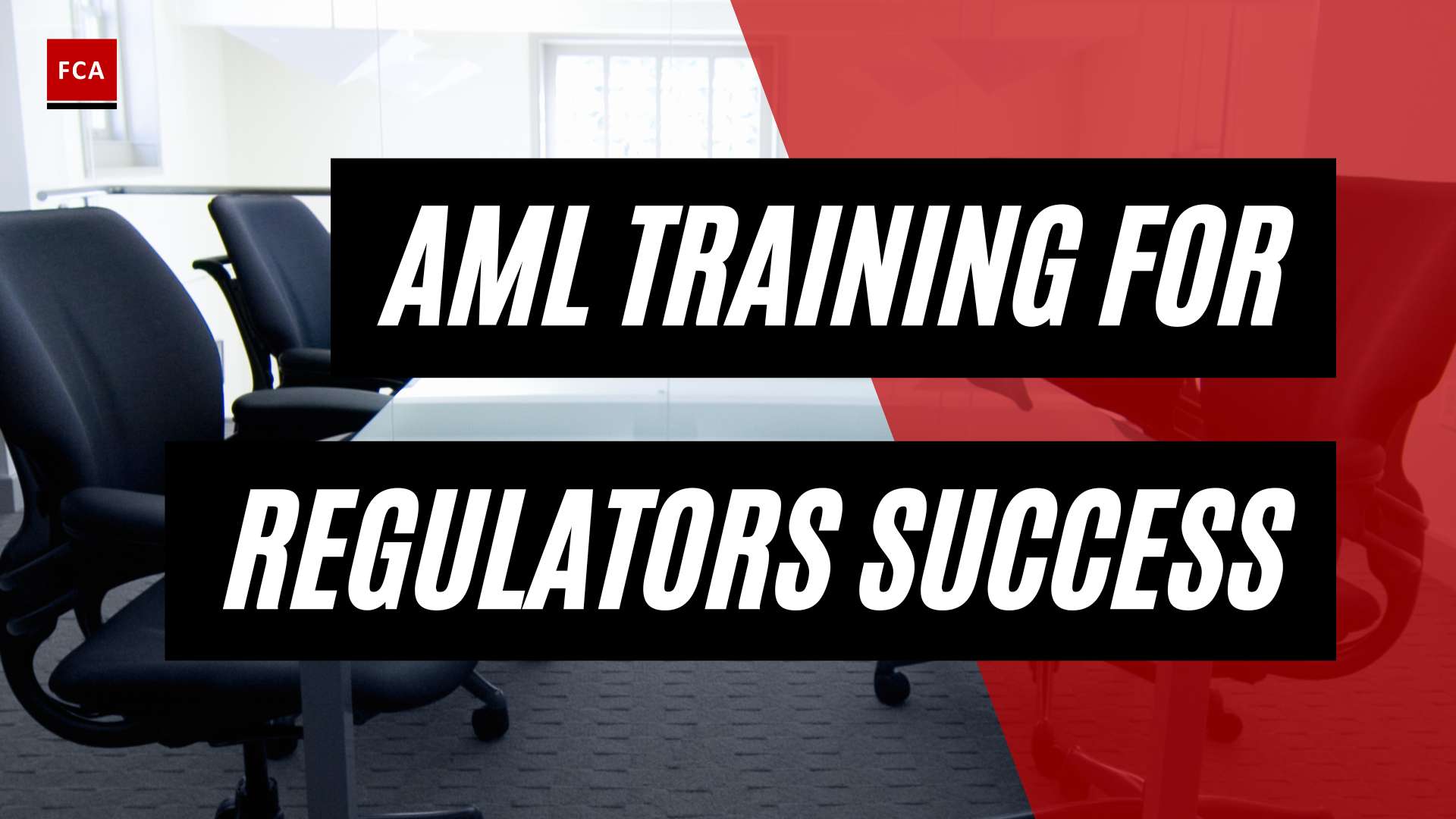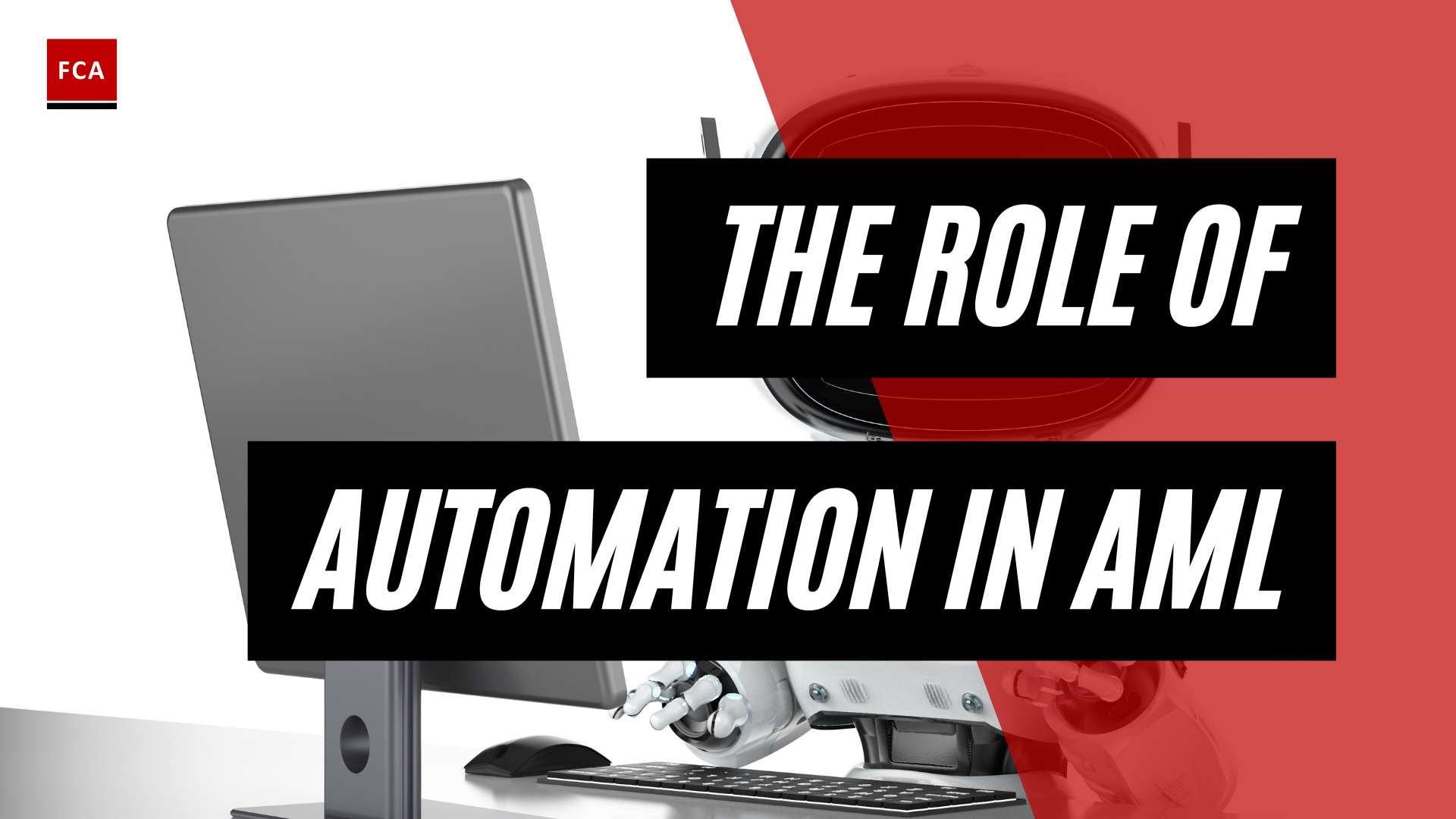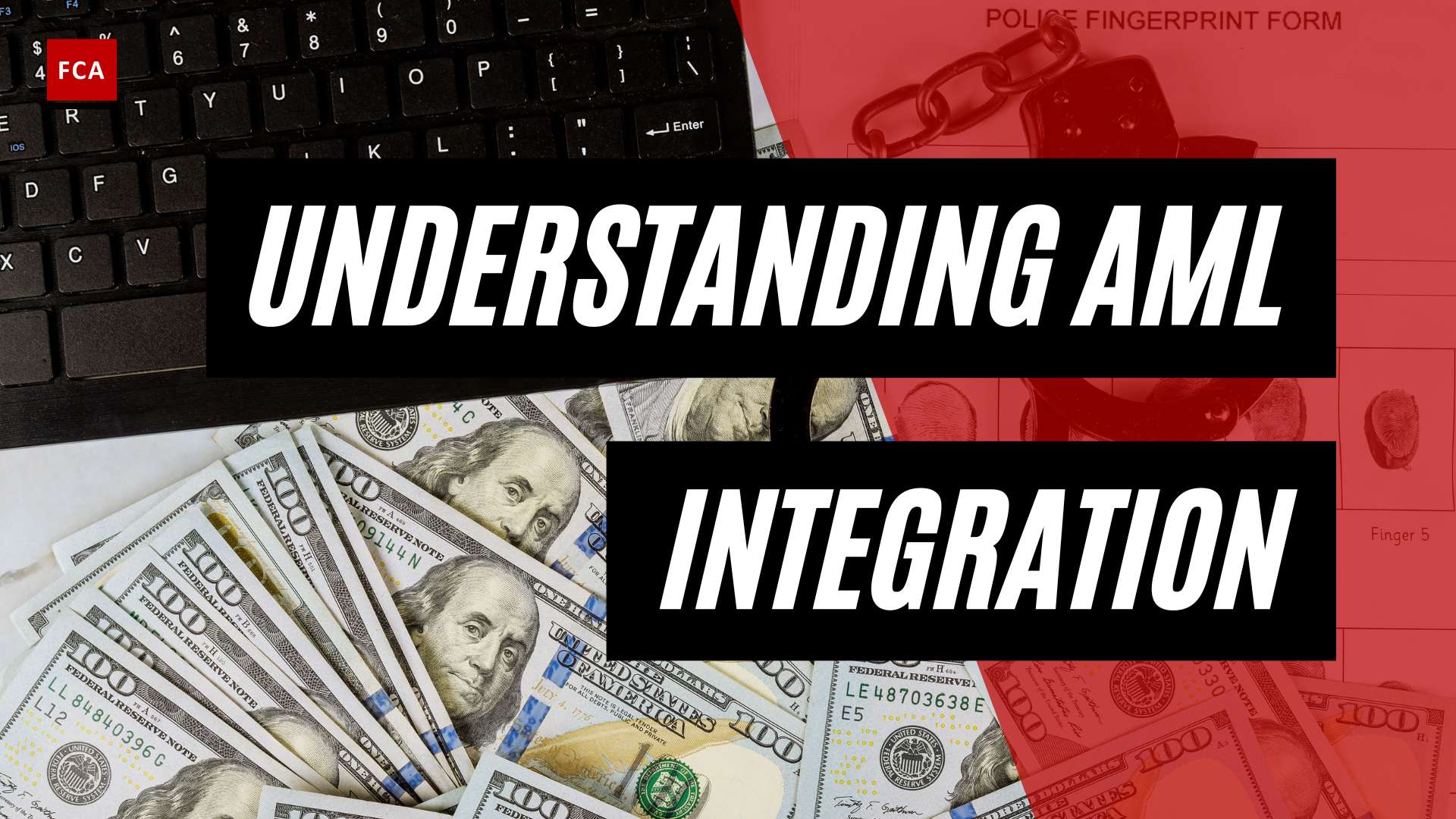Understanding Cross-Border AML Due Diligence
To combat the risks of money laundering and terrorist financing in cross-border transactions, understanding and implementing effective cross-border AML due diligence is of utmost importance. This process involves verifying the identity of customers and assessing the risks associated with transactions that cross jurisdictions. By conducting thorough due diligence, businesses and financial institutions can prevent financial crimes and ensure compliance with global regulations.
Importance of Cross-Border AML Due Diligence
Cross-border AML due diligence plays a vital role in safeguarding the integrity of the financial system and mitigating the risks associated with illicit activities. By implementing robust due diligence procedures, businesses can:
- Identify and verify the identity of customers and beneficial owners to prevent impersonation, fraud, and the misuse of financial services.
- Assess the risk level posed by customers and transactions based on factors such as geography, industry sector, transaction volume, exposure to sanctioned entities, and more. This risk-based approach allows for tailored due diligence procedures, including enhanced due diligence (EDD) for high-risk clients and transactions.
- Ensure compliance with international AML compliance standards and regulations, reducing the risk of penalties and reputational damage.
Key Components of Cross-Border AML Due Diligence
To conduct effective cross-border AML due diligence, several key components must be considered:
-
Know Your Customer (KYC) and Risk Assessment: KYC is a fundamental aspect of due diligence, requiring the collection and verification of basic information about customers, such as their name, address, nationality, and identification documents. Additionally, a thorough risk assessment should be conducted to evaluate the risk level posed by customers and transactions based on various factors (LinkedIn).
-
Sanctions Screening and Compliance Obligations: Regularly checking sanctions lists is crucial to avoid engaging with sanctioned parties or facilitating prohibited transactions. Businesses should be aware of comprehensive, targeted, or secondary sanctions and their implications on operations and compliance obligations.
-
Enhanced Due Diligence (EDD) in Cross-Border Transactions: Enhanced due diligence should be applied in cases where the risk of money laundering or terrorist financing is higher in cross-border transactions. This involves a more comprehensive assessment of customers and their activities, allowing for a deeper understanding of potential risks.
By incorporating these key components into their cross-border AML due diligence processes, businesses and financial institutions can better detect and prevent illicit activities, ensure compliance with cross-border money laundering laws, and contribute to the global fight against financial crimes.
Conducting Effective Cross-Border AML Due Diligence
To ensure compliance with cross-border AML regulations and mitigate the risks of money laundering and financing of terrorism, conducting effective due diligence is crucial. This section explores three key components of cross-border AML due diligence: Know Your Customer (KYC) and risk assessment, sanctions screening and compliance obligations, and enhanced due diligence (EDD) in cross-border transactions.
Know Your Customer (KYC) and Risk Assessment
Know Your Customer (KYC) is a fundamental aspect of conducting due diligence on cross-border clients and transactions. It involves collecting and verifying basic information such as name, address, nationality, and identification documents, as well as details about business activities, ownership structure, source of funds, and transaction patterns (LinkedIn). By implementing robust KYC procedures, businesses can better understand the nature of their customers’ activities, assess the associated risks, and establish a strong foundation for effective AML compliance.
Risk assessment plays a crucial role in evaluating the risk level posed by clients and transactions in cross-border scenarios. Factors such as geography, industry sector, transaction volume, exposure to sanctioned entities, and more are considered when assessing the risk level. Employing a risk-based approach allows tailoring of due diligence procedures according to the specific risk level, including the application of enhanced due diligence (EDD) for high-risk clients and transactions (LinkedIn). By conducting a thorough risk assessment, businesses can allocate their resources effectively and focus their due diligence efforts where they are most needed.
Sanctions Screening and Compliance Obligations
Regularly checking sanctions lists is vital to avoid engaging with sanctioned parties or facilitating prohibited transactions. Sanctions can include asset freezes, trade embargoes, travel bans, and financial restrictions. Businesses should be aware of comprehensive, targeted, or secondary sanctions and their implications on operations and obligations. By implementing robust sanctions screening processes, businesses can identify and mitigate risks associated with cross-border transactions, ensuring compliance with global AML regulations (LinkedIn).
Compliance obligations are a crucial aspect of cross-border AML due diligence. Financial institutions should implement comprehensive compliance programs that include government screening, transaction monitoring, and ongoing customer due diligence. These measures enable financial institutions to detect and report suspicious activities effectively. By integrating compliance obligations into their due diligence processes, businesses can fulfill their regulatory requirements and contribute to the collective effort in combating money laundering and other illicit financial activities.
Enhanced Due Diligence (EDD) in Cross-Border Transactions
Enhanced due diligence (EDD) should be applied by financial institutions in cases where the risk of money laundering or terrorist financing is higher in cross-border transactions. EDD involves a more comprehensive assessment of customers and their activities, going beyond the standard KYC procedures. Financial institutions may need to gather additional information and documentation to gain a deeper understanding of the nature and purpose of the transactions, the source of funds, and the potential risks involved (AML Friends). By conducting EDD, businesses can identify and mitigate higher-risk transactions, ensuring compliance with global AML standards.
By effectively conducting know your customer (KYC) procedures, performing risk assessments, implementing sanctions screening, complying with regulatory obligations, and applying enhanced due diligence (EDD) in cross-border transactions, businesses can strengthen their AML compliance efforts and contribute to building a secure global financial system. It is important for professionals working in compliance, risk management, anti-money laundering, and anti-financial crime to stay updated with international AML compliance standards and continuously improve their cross-border AML due diligence practices.
Challenges and Best Practices in Cross-Border AML Due Diligence
As businesses operate in an increasingly globalized world, conducting effective cross-border anti-money laundering (AML) due diligence becomes crucial to ensure compliance with cross-border AML regulations and mitigate risks. However, this process comes with its own set of challenges. This section explores the challenges faced in cross-border AML due diligence and highlights best practices to overcome them.
Varying Regulatory Requirements in Different Jurisdictions
One of the primary challenges in cross-border AML due diligence is navigating the varying regulatory requirements across different jurisdictions. Each jurisdiction may have its own set of AML laws, regulations, and reporting obligations. It becomes essential for organizations to understand and comply with the specific regulatory frameworks in each jurisdiction where they operate.
To address this challenge, organizations should establish a comprehensive understanding of the regulatory landscape in each jurisdiction and continuously monitor any updates or changes. Implementing a robust cross-border AML monitoring system allows organizations to stay updated with evolving regulations and adapt their compliance programs accordingly.
Utilizing Technology for Efficient Due Diligence
The complex nature of cross-border transactions demands efficient due diligence processes. Fortunately, advancements in technology offer solutions to streamline and enhance cross-border AML due diligence.
Utilizing innovative technologies such as artificial intelligence (AI) and machine learning can enhance the efficiency and accuracy of cross-border AML due diligence processes, enabling companies to identify suspicious activities more effectively and comply with regulations. These technologies can automate data analysis, flag potential risks, and reduce manual effort, allowing compliance teams to focus on high-risk areas.
By leveraging technology-driven solutions, organizations can improve the speed and effectiveness of their due diligence processes, ensuring compliance with cross-border AML regulations while minimizing operational costs.
Collaboration and Information Sharing for Effective Compliance
Collaboration and information sharing among jurisdictions, regulatory bodies, and financial institutions are crucial for effective cross-border AML due diligence. Criminals often exploit the differences between national AML systems, making it crucial for jurisdictions to cooperate and exchange information to combat money laundering and terrorist financing activities.
To foster collaboration, jurisdictions can establish information-sharing mechanisms, enabling the timely exchange of intelligence and suspicious activity reports. International organizations like the Financial Action Task Force (FATF) play a significant role in promoting global cooperation and setting global AML compliance standards to ensure consistent and effective AML measures.
Financial institutions should actively engage in public-private partnerships and industry forums to share best practices, insights, and emerging trends in cross-border AML due diligence. Collaborative efforts can enhance knowledge sharing, facilitate the development of effective compliance strategies, and promote a united front against money laundering threats.
By addressing the challenges of varying regulatory requirements, utilizing technology-driven solutions, and fostering collaboration, organizations can strengthen their cross-border AML due diligence processes. Implementing best practices helps ensure compliance with international AML compliance standards and contributes to a global effort to combat money laundering and financial crime.
Compliance and Consequences in Cross-Border AML Due Diligence
Compliance with cross-border AML regulations is of utmost importance to ensure the integrity of the global financial system and combat money laundering and terrorist financing. Failure to adhere to these regulations can have severe consequences. In this section, we will explore the stricter enforcement and increasing fines, the benefits of strong AML policies and regulations, and the role of global standards and regulatory bodies in shaping AML measures.
Stricter Enforcement and Increasing AML Fines
In recent years, there has been a significant increase in the enforcement of anti-money laundering regulations globally. AML fines have risen by 50%, indicating a growing commitment to combat financial crimes (LexisNexis). Regulators and authorities are actively scrutinizing organizations to ensure compliance with AML requirements.
Alleged breaches of AML regulations are leading to larger fines against companies. These fines not only affect an organization’s financial standing but also its reputation. It is essential for businesses operating across borders to prioritize thorough AML due diligence and stay up to date with evolving regulations to avoid penalties and reputational damage.
Benefits of Strong AML Policies and Regulations
Implementing and maintaining strong anti-money laundering policies and regulations brings several benefits to businesses, financial institutions, and the broader economy. A robust AML framework prevents the infusion of illicit funds into the economy, contributing to the integrity and stability of financial systems worldwide (LexisNexis).
Effective AML measures promote transparency, accountability, and a culture of trust in financial transactions. By establishing and enforcing AML policies, businesses and financial institutions can protect themselves and their customers from the risks associated with money laundering and other financial crimes. AML compliance also helps organizations avoid reputational damage and loss of customer trust.
Global Standards and Regulatory Bodies Shaping AML Measures
International AML regulatory bodies play a crucial role in setting global standards and guidelines for AML measures. These bodies, such as the Financial Action Task Force (FATF), the European Union (EU), and the United Nations (UN), significantly influence national policies by providing recommendations and best practices (LexisNexis).
The Financial Action Task Force (FATF) is a prominent global standard-setter for AML measures. It develops and promotes policies to combat money laundering and terrorist financing. The FATF’s recommendations serve as a benchmark for countries in establishing their AML frameworks. The European Union (EU) and the United Nations (UN) also play essential roles in shaping AML regulations and ensuring international cooperation in fighting financial crimes.
By adhering to these global standards and closely monitoring updates from regulatory bodies, businesses and financial institutions can proactively enhance their cross-border AML due diligence efforts. This includes staying informed about cross-border AML regulations, conducting comprehensive AML risk assessments, implementing robust AML compliance programs, and participating in cross-border AML training programs.
In summary, compliance with cross-border AML regulations is critical in today’s global financial landscape. Stricter enforcement and increasing fines emphasize the importance of thorough AML due diligence. Strong AML policies and regulations bring numerous benefits, including protecting businesses, financial institutions, and the broader economy. Global standards and regulatory bodies continue to shape AML measures, underscoring the need for organizations to stay informed and adapt to evolving requirements.








